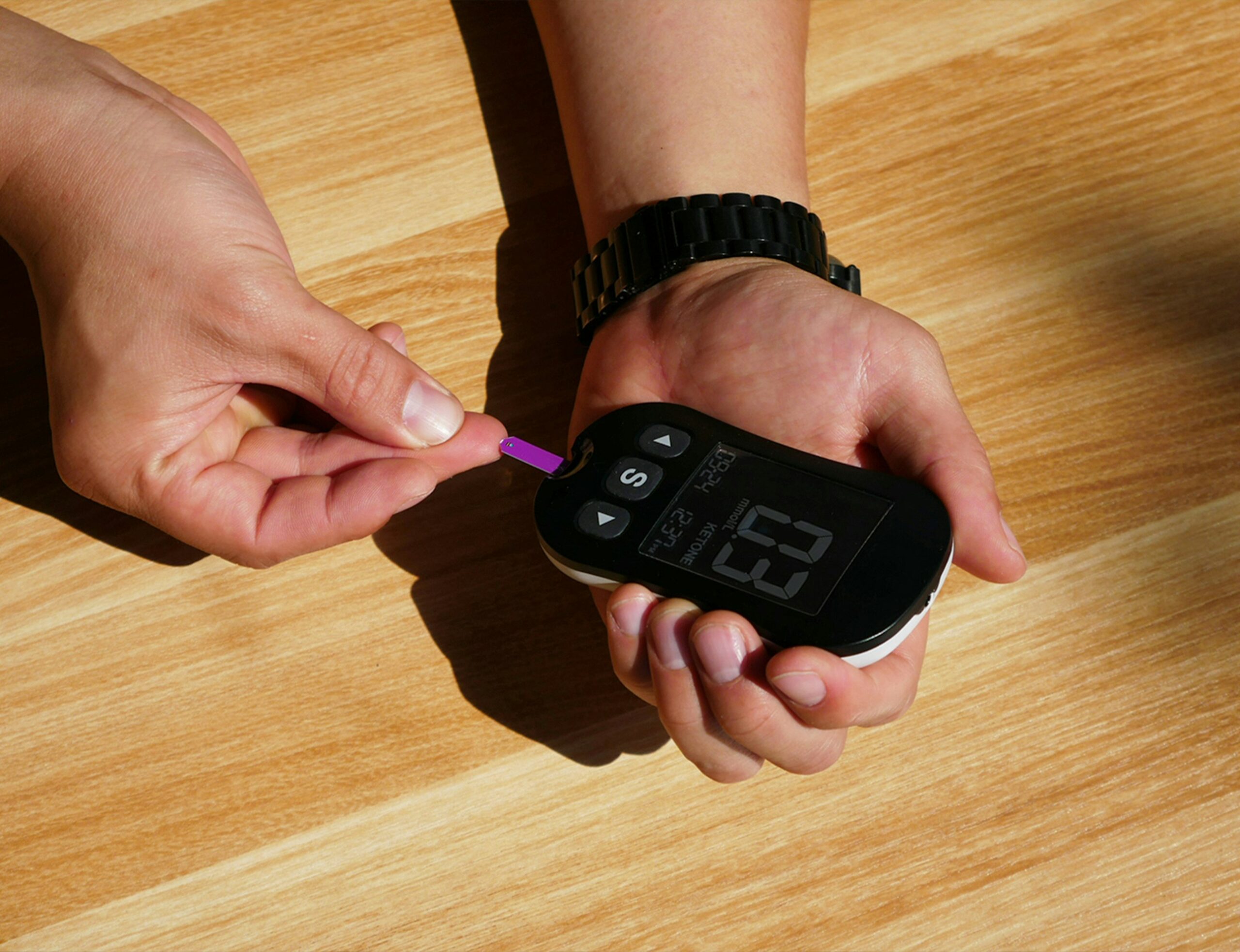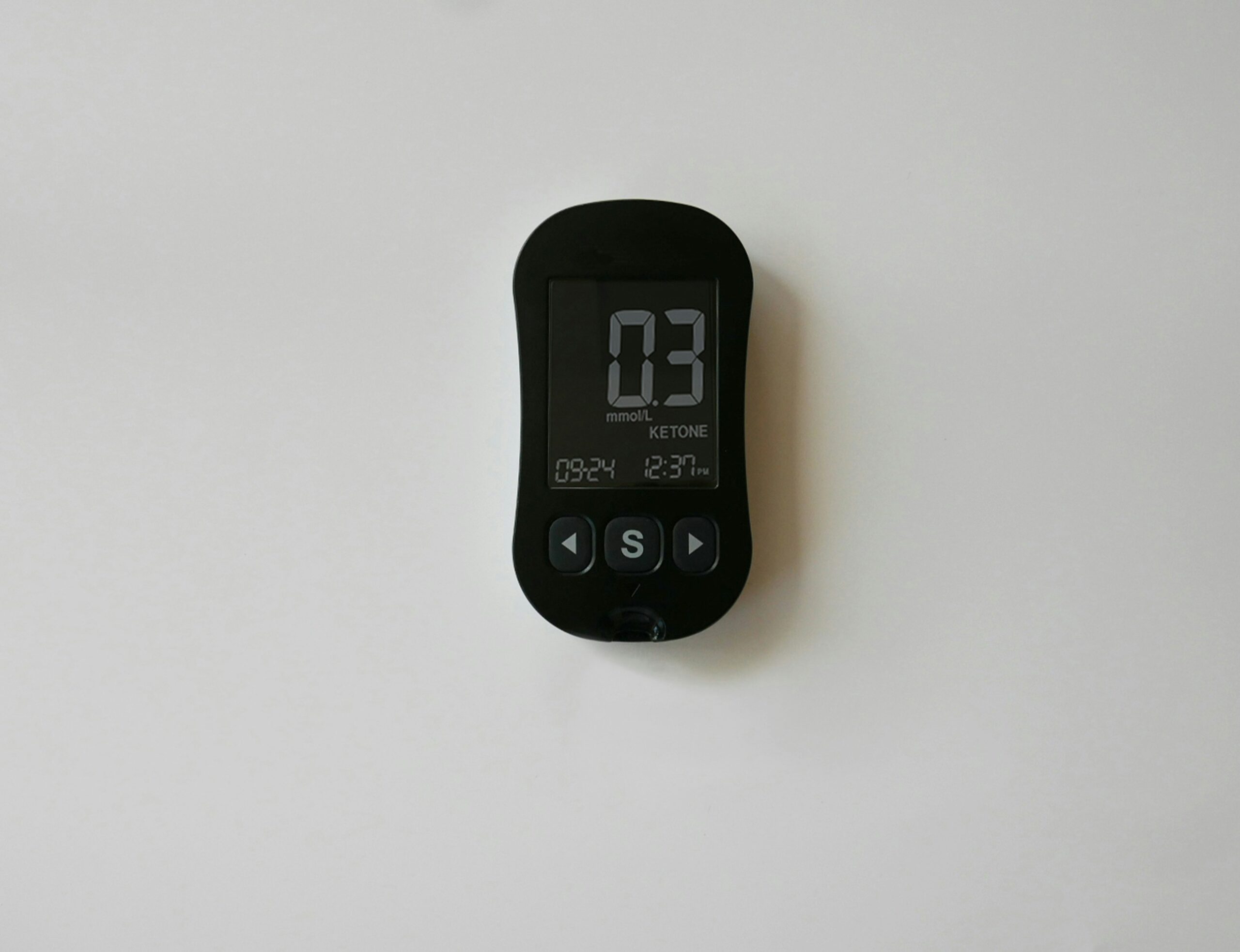Are you curious about the impact of the keto diet on insulin levels? Well, you’ve come to the right place! In this article, we will explore the fascinating relationship between the keto diet and insulin, diving deep into how this popular eating plan can potentially affect your body’s insulin production and utilization. Whether you’re already following the keto diet or just considering it, understanding its effects on insulin levels could provide valuable insights into your overall health and well-being. So, let’s get started on this enlightening journey together!

Understanding the Keto Diet
Definition of the Keto Diet
The keto diet, short for ketogenic diet, is a low-carb, high-fat diet that has gained popularity in recent years. The main concept behind the keto diet is to significantly reduce carbohydrate intake and replace it with healthy fats. By doing so, the body enters a metabolic state called ketosis, where it begins to burn fat for fuel instead of carbohydrates.
Main components of the Keto Diet
The main components of the keto diet include high-fat foods such as avocados, nuts, seeds, oils, and fatty cuts of meat. Protein sources like poultry, beef, and fish are also included in moderation. Carbohydrate intake is severely restricted, with most foods high in carbohydrates, such as grains, starchy vegetables, and sugary foods, being eliminated or limited. Instead, non-starchy vegetables and low-carb fruits are consumed to meet the body’s nutrient needs.
Rationale behind the Keto Diet
The rationale behind the keto diet lies in the way it affects insulin levels in the body. Insulin is a hormone produced by the pancreas that helps regulate blood sugar levels. When carbohydrates are consumed, they are broken down into glucose (sugar), causing a rise in blood sugar levels. In response, the body releases insulin to transport the glucose into cells for energy or storage.
What is Insulin and Its Function?
Definition and Role of Insulin
Insulin is a hormone produced by the pancreas and plays a crucial role in regulating blood sugar levels. Its primary function is to facilitate the uptake of glucose from the bloodstream into cells, where it is used for energy or stored as glycogen for future use. Without insulin, glucose cannot enter the cells, leading to high blood sugar levels.
How Insulin Manages Blood Sugar Levels
When you consume carbohydrates, they are broken down into glucose and enter the bloodstream, causing blood sugar levels to rise. In response, the pancreas releases insulin, which binds to insulin receptors on cell surfaces, allowing glucose to enter the cells. This helps lower blood sugar levels and provides the cells with the necessary energy.
Insulin Resistance and Its Impact on Health
Insulin resistance occurs when the body’s cells become less responsive to the action of insulin. As a result, the pancreas produces more insulin to compensate for the reduced effectiveness. Over time, insulin resistance can lead to consistently high levels of insulin in the blood, which can have negative effects on health. It is often associated with obesity, type 2 diabetes, and other metabolic disorders.
The Impact of Carbohydrates on Insulin Levels
Link between Carbohydrate Intake and Insulin Production
Carbohydrate intake has a direct impact on insulin production. As carbohydrates are broken down into glucose, the body responds by releasing insulin to manage the rise in blood sugar levels. The higher the carbohydrate intake, particularly high-glycemic carbohydrates like sugary foods and refined grains, the greater the insulin response.
How High Carb Diets Can Lead to Insulin Resistance
Consistently consuming high carbohydrate diets can lead to insulin resistance. When the body is exposed to high levels of insulin on a regular basis, the cells can become desensitized to its effects, requiring even more insulin to have the same impact on blood sugar levels. This vicious cycle can contribute to the development of insulin resistance and ultimately increase the risk of type 2 diabetes.
The Role of Insulin in Fat Storage and Weight Gain
Insulin also plays a role in fat storage and weight gain. When insulin levels are elevated, it signals the body to store excess glucose as fat. This can contribute to weight gain, especially when combined with a high-calorie diet. By limiting carbohydrate intake and consequently reducing insulin levels, the keto diet aims to promote the use of stored fat as a source of energy instead.
The Ketogenic Diet and Carbohydrate Restriction
How the Keto Diet Reduces Carbohydrate Intake
The keto diet achieves carbohydrate restriction by limiting the consumption of foods high in carbohydrates. Traditional carbohydrate-rich foods like grains, legumes, and potatoes are restricted or eliminated from the diet. Instead, the focus is on consuming healthy fats, moderate amounts of protein, and low-carbohydrate vegetables and fruits. This approach significantly reduces overall carbohydrate intake, prompting the body to shift into ketosis for energy production.
Role of Ketosis in the Keto Diet
Ketosis is a metabolic state that occurs when the body doesn’t have enough carbohydrates to burn for energy and starts breaking down fats instead. During ketosis, the liver produces ketones from fatty acids, which serve as an alternative fuel source for the body and the brain. The presence of ketones in the bloodstream characterizes ketosis and is a key aspect of the keto diet.
Benefits of Lower Carbohydrate Consumption for Insulin Levels
Lower carbohydrate consumption on the keto diet can have several benefits for insulin levels. By reducing carbohydrate intake, blood sugar levels remain more stable, leading to a decreased need for insulin production. This can help improve insulin sensitivity and reduce the risk of insulin resistance. Additionally, the keto diet’s emphasis on healthy fats can provide a more sustained and steady source of energy, reducing the insulin spikes associated with carbohydrate-rich meals.

The Keto Diet’s Effect on Insulin Sensitivity
How the Keto Diet Can Improve Insulin Sensitivity
The keto diet has shown promise in improving insulin sensitivity, which refers to the body’s ability to effectively respond to insulin. By reducing carbohydrate intake and promoting a state of ketosis, the keto diet can help lower insulin levels and reduce insulin resistance. This, in turn, can improve the body’s response to insulin, allowing glucose to enter cells more efficiently and leading to better blood sugar control.
Research on the Keto Diet and Insulin Sensitivity
Several studies have investigated the effects of the keto diet on insulin sensitivity. A study published in the Journal of Obesity and Weight Loss Therapy found that following a ketogenic diet for 12 weeks significantly improved insulin sensitivity and glucose control in overweight individuals with prediabetes. Other studies have also reported improvements in insulin sensitivity among individuals following a keto diet.
The Keto Diet as a Potential Tool for Diabetes Management
Due to its positive impact on insulin sensitivity and blood sugar control, the keto diet has been studied as a potential tool for diabetes management. Research suggests that the keto diet may help reduce medication needs, improve glycemic control, and even lead to remission in some cases of type 2 diabetes. However, it is essential to consult with a healthcare professional before making any dietary changes, especially for individuals with diabetes.
Keto Diet’s Effect on Insulin Resistance
Impact of the Keto Diet on Insulin Resistance
The keto diet can have a significant impact on insulin resistance. By reducing carbohydrate intake and inducing ketosis, the keto diet helps lower insulin levels and reduce the need for increased insulin production. This can help improve insulin sensitivity and alleviate insulin resistance, which is an underlying factor in many chronic conditions, including metabolic syndrome, type 2 diabetes, and cardiovascular disease.
Studies on the Efficacy of the Keto Diet for Managing Insulin Resistance
Several studies have examined the efficacy of the keto diet in managing insulin resistance. A study published in the journal Nutrition & Metabolism found that a low-carbohydrate ketogenic diet was more effective than a low-calorie diet for improving insulin sensitivity in obese individuals. Another study published in the journal Obesity Reviews reported that very-low-carbohydrate diets, such as the ketogenic diet, were effective in reducing insulin resistance and improving metabolic health markers.
Understanding the Mechanism: How the Keto Diet Reduces Insulin Resistance
The exact mechanism behind how the keto diet reduces insulin resistance is not yet fully understood. However, several factors may contribute to this effect. The reduced carbohydrate intake on the keto diet leads to lower blood sugar levels and decreases the need for insulin production, which can help improve insulin sensitivity. Additionally, the use of ketones as an alternative fuel source may have positive effects on cellular metabolism, influencing insulin signaling pathways and reducing insulin resistance.

Potential Negative Effects of the Keto Diet on Insulin Levels
Possible Side Effects of the Keto Diet on Insulin Levels
While the keto diet can be beneficial for insulin levels, it is not without potential side effects. Some individuals may experience an initial decrease in insulin levels, which can lead to temporary hypoglycemia (low blood sugar). This is more common in individuals who are on diabetes medication or have a history of unstable blood sugar control. It is essential to monitor blood sugar levels closely and work with a medical professional when embarking on a keto diet.
Research Indicating Potential Cons of the Keto Diet for Insulin Health
Some research suggests that prolonged adherence to the keto diet may result in decreased insulin secretion, potentially leading to impaired glucose tolerance. A study published in the journal PLoS One found that individuals following a long-term ketogenic diet had reduced insulin response to a glucose challenge compared to individuals following a mixed diet. However, more research is needed to better understand the long-term effects of the keto diet on insulin levels.
Who Should Avoid the Keto Diet Due to Potential Impact on Insulin Levels
Individuals with specific medical conditions, such as type 1 diabetes or pancreatic disorders, should avoid the keto diet due to its potential impact on insulin levels. Additionally, pregnant or breastfeeding women, those with gallbladder issues, or individuals with a history of eating disorders should also avoid this dietary approach. It is always advisable to consult with a healthcare professional before starting any new diet, especially if you have underlying health conditions.
Personalizing the Keto Diet for Optimal Insulin Health
How to Adjust the Keto Diet for Better Insulin Sensitivity
To maximize insulin health while following the keto diet, it is crucial to prioritize the quality of food choices and customize the diet according to individual needs. Focus on incorporating nutrient-dense whole foods, including healthy fats like avocados, olive oil, and nuts, along with high-quality protein sources such as lean meats and fatty fish. Additionally, consuming plenty of non-starchy vegetables and low-carb fruits can provide essential vitamins, minerals, and fiber while minimizing the impact on insulin levels.
The Role of Exercise along with the Keto Diet in Insulin Management
Regular physical activity plays a vital role in managing insulin levels, regardless of the dietary approach followed. When combined with the keto diet, exercise can have synergistic effects on insulin sensitivity. Engaging in both aerobic exercise and strength training can help improve glucose utilization by muscles, increase insulin sensitivity, and promote overall metabolic health. It is essential to consult with a healthcare professional before starting or modifying an exercise routine.
Monitoring Insulin Levels while on the Keto Diet
If you are concerned about your insulin levels while following the keto diet, it is advisable to monitor them regularly with the guidance of a healthcare professional. Blood tests, such as fasting blood glucose and HbA1c, can provide valuable information about your blood sugar control and average blood glucose levels over time. Monitoring insulin levels can help detect any potential imbalances and guide adjustments to your dietary and lifestyle choices.
Scientific Research Supporting the Effect of Keto Diet on Insulin Levels
Overview of Key Studies on the Keto Diet and Insulin Levels
Numerous studies have investigated the effect of the keto diet on insulin levels. A study published in the journal Metabolism examined the impact of a very-low-carbohydrate ketogenic diet on insulin levels in obese individuals. The study found that the keto diet significantly reduced fasting insulin levels and improved insulin sensitivity compared to a low-fat diet. Other studies have reported similar findings, highlighting the positive effect of the keto diet on insulin regulation.
Interpreting Scientific Findings on the Keto Diet and Insulin Health
Interpreting scientific findings on the keto diet and insulin health requires considering multiple factors. While many studies show positive effects of the keto diet on insulin levels, individual responses may vary. Factors such as baseline insulin sensitivity, overall health status, and adherence to the diet can influence outcomes. It is essential to interpret scientific findings in the context of your individual circumstances and consult with a healthcare professional for personalized advice.
Remaining Questions and Directions for Future Research
Although scientific research has provided valuable insights into the effects of the keto diet on insulin levels, several questions remain unanswered. Further research is needed to explore the long-term effects of the keto diet on insulin health, including its impact on different populations, potential risks, and benefits for various health conditions. Additionally, future studies should investigate optimal dietary modifications, exercise interventions, and other lifestyle factors for personalized insulin management.
Final Thoughts on the Keto Diet’s Effect on Insulin Levels
Overall Evaluation of the Keto Diet’s Impact on Insulin
In conclusion, the keto diet can have a significant impact on insulin levels and insulin sensitivity. By reducing carbohydrate intake and promoting ketosis, the keto diet can help lower insulin levels, improve insulin sensitivity, and potentially reduce the risk of insulin resistance and associated health conditions. However, it is essential to approach the keto diet with caution, considering individual factors and working closely with a healthcare professional.
Striking a Balanced Diet for Optimal Insulin Health
While the keto diet may be beneficial for some individuals, it is not the only approach to optimize insulin health. Striking a balanced diet that incorporates a variety of nutrient-dense foods, including carbohydrates from whole grains, fruits, and vegetables, can also support insulin regulation. The key is to focus on consuming high-quality carbohydrates, healthy fats, and lean proteins while avoiding excessive consumption of processed foods, added sugars, and refined grains.
Need for Further Research and Monitoring of the Keto Diet’s Impact on Insulin Health
As with any dietary approach, further research is needed to better understand the long-term effects and individual responses to the keto diet on insulin health. It is crucial to monitor insulin levels, blood sugar control, and overall health indicators while following the keto diet to ensure optimal well-being. Consulting with healthcare professionals and registered dietitians can provide valuable guidance in implementing and monitoring the keto diet for insulin management.

